Symposium of Asia-Pacific Occupational Therapists at Chang Gung University for Discussion of Global Trend and Contextualization of Local Occupational Therapy
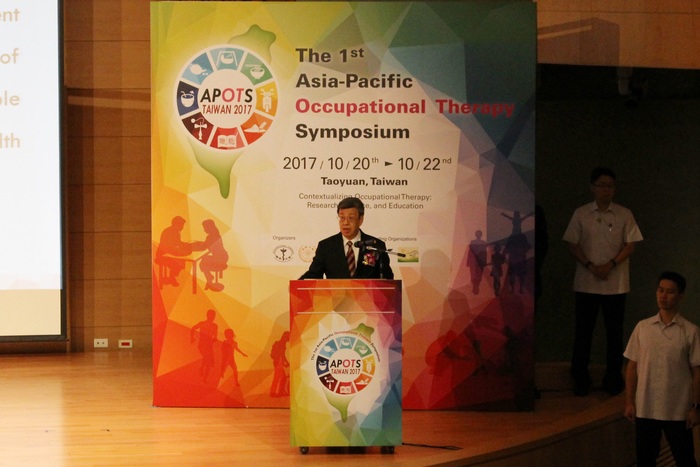
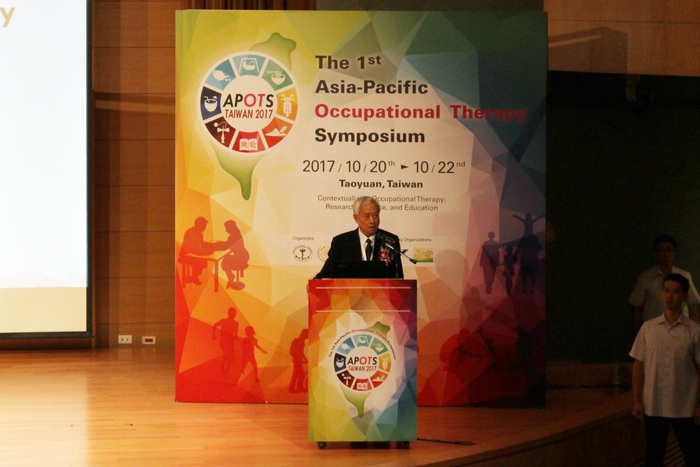
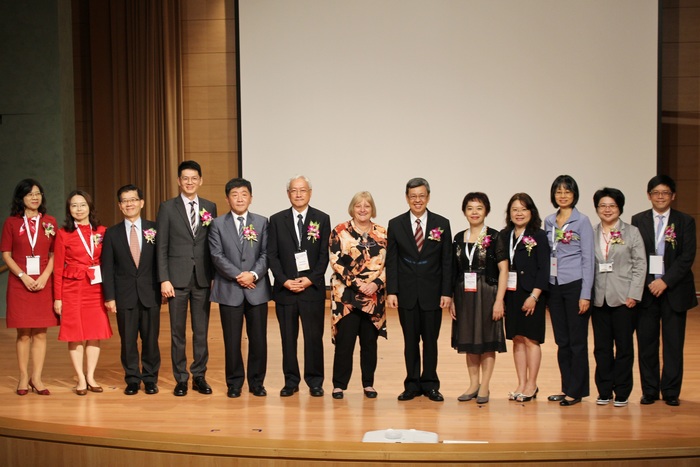
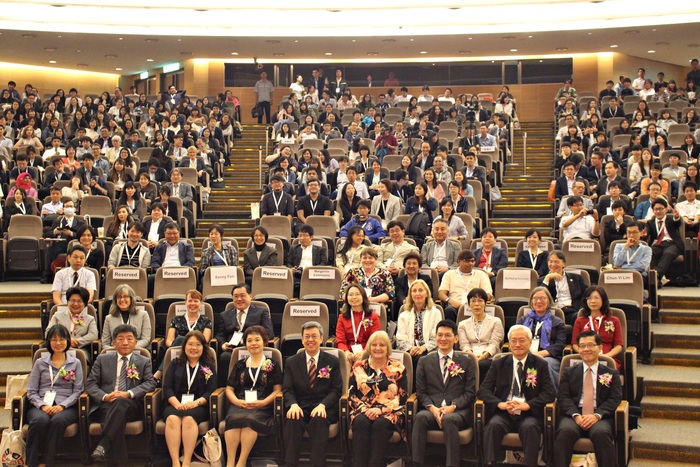
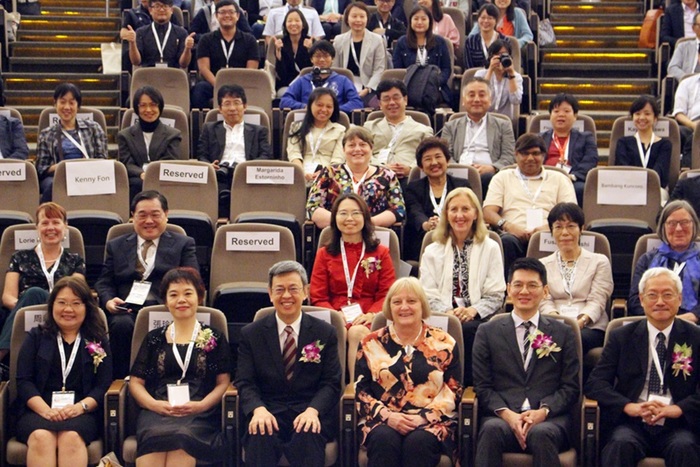
Symposium of Asia-Pacific Occupational Therapists at Chang Gung University for Discussion of Global Trend and
Office of Secretariat
The 1st Asia-Pacific Occupational Therapy Symposium (APOTS) was jointly organized by the Taiwan Occupational Therapy Association and the Department of Occupational Therapy of Chang Gung University. This 3-day event took place at Chang Gung University starting on the 20th of October, with over 700 professional occupational therapists from 18 different countries attending the event. The aim of this symposium is to discuss and publish the latest issues concerning the global development and society’s demand for occupational therapy.
Our beloved Vice President of Taiwan Dr. Jian-Ren Chen, Minister of Health and Welfare Dr. Shi-Zhong Chen, and President of Chang Gung University Prof. Chia-Chu Pao were at the opening ceremony on the 20th of October. Vice President of Taiwan Dr. Jian-Ren Chen expressed his gratitude for the ongoing contribution and restless effort of professional occupational therapists in the development of mental health, early intervention and rehabilitation. He also highlighted the key role of occupational therapy in the Long Term Care 2.0 policy that places importance on the improvement of citizens’ healthcare quality. The symposium provided a platform for the mutual exchange of ideology amongst the professional occupational therapists. They attended the Asia-Pacific Occupational Therapy Symposium in order to share their teaching, research and practical experiences.
The Department of Occupational Therapy of Chang Gung University took the initiative to organize the 1st Asia-Pacific Occupational Therapy Symposium in Taiwan in view of the increasing demand for occupational therapy experts in various Asia-Pacific countries. The theme of this symposium is “Contextualizing Occupational Therapy: Research, Practice and Education”. A few prestigious speakers who have outstanding achievement and major global impact in the field of occupational therapy were invited to the event, including Ms. Marilyn Pattison, President of the World Federation of Occupational Therapists (WFOT) and Mr. Patrick Ker, President of the Asia Pacific Occupational Therapy Regional Group (APOTRG).
Attending occupational therapists engaged in in-depth discussion concerning the occupational therapy care model in the Long Term Care 2.0 policy, occupational therapists’ role in the follow-up care of acute conditions, integration of machine aids and technology in patients’ treatment as well as the issue of senior driving. Through the interaction and exchange of ideas between local and international experts, a deeper understanding regarding the development of occupational therapy and healthcare in the world was established. This helped the participants of this symposium develop and execute appropriate occupational therapy models based on their local society and medical context.
The Taiwan Occupational Therapy Association pointed out the fact that since the 1940s, Taiwan has established occupational therapy units at Cheng Hsin General Hospital, Mackay Memorial Hospital, National Taiwan University Hospital and several mental sanatoriums with the assistance of the World Health Organization (WHO). All of them share the common goal of providing professional occupational therapy service to the public. Today, the national occupational therapy service has been expanded to cover the aspects of long term care, early treatment, mental health, community care, auxiliary service and career rebuild, etc.
Currently, the Taiwanese government is actively promoting relevant policies that focus on improving citizens’ healthcare quality, in view of the structural shift in our national population. Apart from the concept of “Rest in Community, Care at Home”, the government also encourages the creation of a healthy environment that is able to cater for different needs of various stages of the life cycle. In the foreseeable future, occupational therapists would definitely become our indispensable companions that safeguard our health.